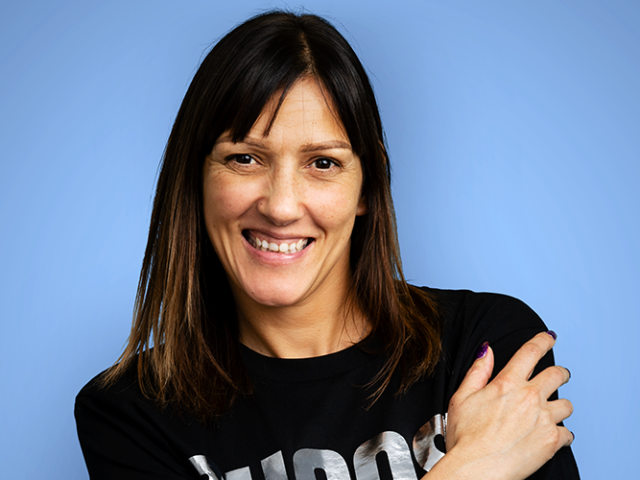When you’re just embarking on your professional journey, figuring out where to begin can pose a challenge. With limited prior work experience to include in your CV, showcasing your skills might prove to be more difficult.
It’s important to consider that numerous companies are actively seeking emerging talent and recent graduates through initiatives like internships, scholarships, and specialised programs. These opportunities are designed for individuals with less experience than those in higher positions.
However, you might be curious about how to distinguish yourself from the multitude of candidates in a similar career stage. To uncover effective strategies, we connected with James Milligan from Hays, who provided insights on approaching the job search, crafting your CV, and excelling in job interviews.
Applying to roles
“Do your research around the type of organisation that you want to work with,” he said. “Some people have a very clear idea of who they want to work for and what they want to do, and some people don’t.”
Yet, those who harbour uncertainty as they delve into the job search process often find themselves at a higher risk of being overlooked. Having a clear sense of your goals can greatly facilitate the task of demonstrating your genuine interest in a specific role. This principle holds true for crafting compelling CVs, impactful cover letters, and performing well during interviews.
“One of the things that happens, I’ve seen this time and time again, is when people have a conversation around why they want to work for an organisation or why they want to work in the sector, they just say, ‘I’ve applied everywhere’. But that’s the worst possible answer you can give.”
To prevent this oversight, Milligan emphasised the importance for entry-level professionals to establish a clear direction before initiating job applications. Begin by identifying the industry, position, or nature of work you aspire to be involved in. Once this groundwork is laid, you can assess job opportunities against your predetermined criteria. This approach will illuminate your motivations for applying to each position, enhancing your ability to articulate your intentions more effectively in your application materials.
Considering these factors, the next phase will be tailoring your CV to each specific role you wish to apply for. “When you get to the application stage where you’re going to send the CV, there may be some degree of additional screening that’s likely to be done via automation these days,” he said. “If you don’t put the right inputs into that with your CV, you’ll immediately be screened out before you even get the chance to speak to a human being.”
Interviewing for the role
Once your application successfully navigates through these initial hurdles, it’s probable that you’ll receive an initial screening call. Typically, this will be conducted by an individual from the talent acquisition, internal recruitment, or cultural engagement team. During this conversation, you can anticipate being asked broad inquiries like your motivations for joining the organisation, your career aspirations, what draws you to the specific role, and comparable queries. Your understanding of why you opted to pursue this specific role will play a crucial role during this stage.
“It’s almost like the pre-screen phase that somebody’s likely to run before putting you into a more formalised recruitment process,” said Milligan who noted that research plays a key role in consistency here.
As you progress into the formal stages of the selection process, you can expect inquiries about your more specialised skills, particularly for roles requiring technical proficiency, such as those in the tech industry. The precise structure of this phase can differ significantly among organisations and programs, potentially encompassing activities like an assessment centre. These centres are designed to discern your strengths through diverse evaluations, which could encompass technical assignments, collaborative aptitude assessments, and assessments of your communication skills within group settings.
“The reason why people run assessments like this is to see how an individual performs in an environment. Now, organisations are becoming more flexible in their recruitment process, so different parts of assessments don’t necessarily suit all different types of people [and] organisations are more cognisant of that now.”
Previous work experience isn’t the only way for you to showcase your skills on your CV. “Looking at what you have done and what you can do to add value beyond your academic experience is really important,” said Milligan.
“Internships are one key thing, if you’re a hobbyist or you’ve done work, let’s say you’re a coder or you’ve been involved in hackathons or you’ve done coding challenges, or you’ve built some projects, all of that is invaluable during that process because it shows an interest and a propensity and a way to demonstrate the skills that are required.”
Demonstrating your skills can also be achieved through engagement in activities such as charity work, participation in sports clubs, or other extracurricular pursuits. Especially for undergraduates seeking entry into graduate programs, your academic degree is likely to showcase your technical competence. However, it’s these supplementary hobbies and additional experiences that can distinguish you. When it comes to the interview phase, anticipate encountering competency-based questions, which will assess your ability to handle various situations and challenges.
Assessing your options
Milligan emphasised that it’s crucial to recognise that an interview is a mutual exchange. It’s imperative to actively participate by posing your own questions to gauge whether the role aligns with your aspirations and preferences.
“The objective of going for an interview is not to take that job. The objective of the interview is to get a job offer so that you can evaluate what’s the best fit for you moving forward, and if you have multiple job offers, then you have decisions that you can make off the back of it,” he said.
“I’d always say to somebody, go into the interview process, even if you feel as though it’s your second or third option. You need to go into every interview process with the objective of getting a job offer. It may be that actually as you go through the process, you’ve learned something can become your preferred organisation.”
A key takeaway for newcomers to the workforce is the value of diversifying your options rather than relying solely on one opportunity, as they say – don’t put all your eggs in one basket!




